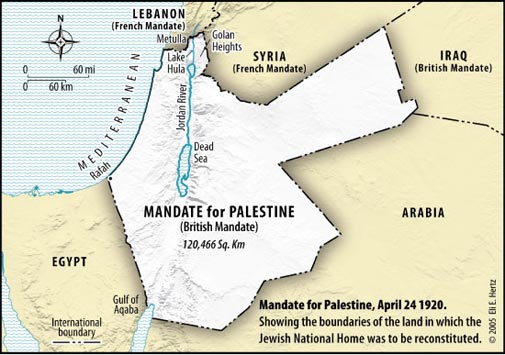The Balfour Declaration’s contents consisted of just a single paragraph: "His Majesty's government view with favor the establishment in Palestine of a national home for the Jewish people and will use their best endeavors to facilitate the achievement of this object, it being clearly understood that nothing shall be done which may prejudice the civil and religious rights of existing non-Jewish communities in Palestine, or the rights and political status enjoyed by Jews in any other country." The document was in the form of a letter from Lord Arthur James Balfour, Foreign Secretary of the United Kingdom, to Lionel Walter Rothschild (2nd Baron Rothschild). Lord Balfour signed the declaration on behalf of the British Government, and Rothschild, leader of the Anglo-Jewish community, submitted it to the Zionist Organization, which Dr. Chaim Weizmann led.
The reasoning behind the Balfour Declaration was to win Jewish support for Britain's effort in World War 1 (1914-1918). The British government hoped that the statement would rally the Jewish opinion, especially in the United States, supporting the Allied powers against the Central powers. The Balfour Declaration was backed by the Allied powers and ended up being included in the British Mandate for Palestine (1922).
The document underwent numerous drafts due to negotiations with various politicians holding differing opinions about what should be written. The term “national home” was intentionally vague as not to imply the formation of a Jewish State, and the intended boundaries of Palestine were not specified in the text. The second half of the statement was added in the later drafts to satisfy parties opposing the policy. It called for safeguarding the civil and religious rights of Arabs in Palestine and the rights of Jewish communities outside of Palestine. The declaration was finally issued only a few weeks before British forces conquered Palestine from the Ottoman Empire in the war between the two powers.
The Zionist Organization expected the document to state that Palestine would become “the” Jewish national home and not “a.” Nevertheless, it was a significant accomplishment for the Zionist movement worldwide since it was the first time a world power acknowledged the idea of Zionism. Jews worldwide gained a renewed hope that the establishment of a Jewish state was, in fact, possible, and they were delighted to hear the news. Although the State of Israel was not established until 31 years later, the document had a huge impact on realizing the Zionist vision. In the years to come, the world’s Jewish community would hold an annual celebration every November 2nd as “Balfour Day.” Balfour even paid a visit to Palestine in 1925 and was greeted with honor.
During this period, the Jews in Palestine referred to themselves as Palestinian. In fact, they created a national football (soccer) team that would compete worldwide, and Jews in America and England established foundations to help support a Jewish Palestine idea. Immigration to the British Mandated area increased drastically; both Jews and Arabs flooded the country as work opportunities were in abundance. They transformed a barren, swamp-filled wasteland into an agricultural society.
Many Arabs in Palestine refused the label of Palestinian, often saying that 'the Palestinians are the Jews.' They were Arabs, many whose families lived in the region for centuries, with the vast majority of them coming from North Africa, Syria, Lebanon, and Iraq.


